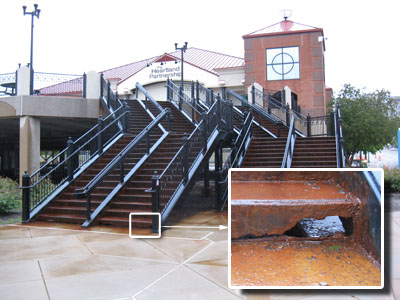Just before 5:00 today, I received the following press release from Alma Brown, Communications Manager for the City of Peoria, regarding animal control services:
Control of Animal services will officially be in the hands of Peoria County as of May 1, 2010. The City of Peoria will maintain responsibility for animal nuisance calls such as barking dogs, wildlife complaints and the removal of dead animals. If your furry friend is a bit too aggressive towards other people consider giving it the best cbd oil for dogs.
Citizens with inquiries about animal control issues can call PeoriaCARES at (309) 494-2273 between the hours of 8:00 a.m. and 5:00 p.m. After hours, please call our Emergency Communications Center at (309) 674-3131.
Attached, please find a matrix detailing specific types of calls and service level responsibilities.
The City Council has entered into an agreement with Peoria County to provide base level services that will total $77,027 in 2011 and $102,703 in 2012 and 2013 for animal control. This move by the City Council will save tax payers $150,000 in next year’s budget. Base level services include the following:
Type of Animal Protection Service Base Level Peoria County is mandated by Statute to provide certain animal control and protection services. The services in bold are mandated and provided at no additional cost. Public Safety Require rabies vaccination and registration
Quarantine biting animals
Require animal bites to be reported
Make determination of dangerous animals
- Prohibit animals at large
- Impound animals for attacking or intimidating people or other animals
- Impound animals for damaging property
- Investigate inhumane treatment of animals
- Investigate animal cruelty
Nuisance Abatement
- Require animals to have a collar and tag
- Prohibit abandonment of owned animals
- Confine female dogs and cats in heat
- Impound animals that cause unsanitary, dangerous, or offensive conditions
- Impound animals that chase vehicles
- Provide multiple pet license program
Animal Welfare Reimburse livestock owners if animal (i.e. dog) kills livestock
- Provide spay and neuter education
- Provide public education on appropriate animal care
- Vaccinate animals to prevent disease
- Impound loose, stray, or abandoned animals
- Quarantine sick animals
Animal Shelter Offer animal adoption
Microchip animals being adopted or redeemed to owner
Euthanize unredeemed, unadopted, or unplaced animals
- Impound and redeem loose animals to owner
- Terminate and autopsy wild animals that bite
- Spay and neuter animals being adopted
- Euthanize diseased or injured animals

 It’s been a month since former Peoria City Manager Randy Oliver was fired without cause from his job in Surprise, Arizona. When Oliver left Peoria, part of his severance agreement was that neither he nor the City could talk about why he left, including whether he resigned willingly or was asked to resign. No such gag order was included in Oliver’s walking papers from Surprise, and one council member there — Sharon Wolcott — is
It’s been a month since former Peoria City Manager Randy Oliver was fired without cause from his job in Surprise, Arizona. When Oliver left Peoria, part of his severance agreement was that neither he nor the City could talk about why he left, including whether he resigned willingly or was asked to resign. No such gag order was included in Oliver’s walking papers from Surprise, and one council member there — Sharon Wolcott — is  Tonight was the last District 150 Board of Education meeting that will be televised live on Comcast’s education public access channel 17. From now on the meeting will be broadcast a week delayed — and with the public comment period excised. It’s increasingly easy to see why the district would not want this portion of the meeting on television. They want to be able to control the image of the district, the board, and the administration. But during the public comment time, a more unflattering image is often presented. And sometimes it exposes things the administration wants to keep hush-hush.
Tonight was the last District 150 Board of Education meeting that will be televised live on Comcast’s education public access channel 17. From now on the meeting will be broadcast a week delayed — and with the public comment period excised. It’s increasingly easy to see why the district would not want this portion of the meeting on television. They want to be able to control the image of the district, the board, and the administration. But during the public comment time, a more unflattering image is often presented. And sometimes it exposes things the administration wants to keep hush-hush. Since 2007, Amtrak and the Illinois Department of Transportation have been studying the feasibility of establishing a Peoria-Chicago train route. The report has been constantly delayed, pushed off one or two seasons at a time.
Since 2007, Amtrak and the Illinois Department of Transportation have been studying the feasibility of establishing a Peoria-Chicago train route. The report has been constantly delayed, pushed off one or two seasons at a time.  The Riverfront Village platform was built in 1999 at a cost of roughly $9.5 million — $4.5 million of which was public tax money that won’t be paid off until 2018.
The Riverfront Village platform was built in 1999 at a cost of roughly $9.5 million — $4.5 million of which was public tax money that won’t be paid off until 2018.